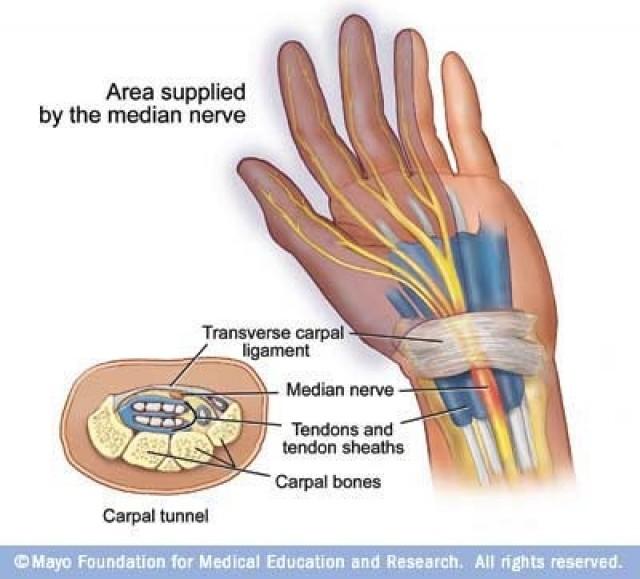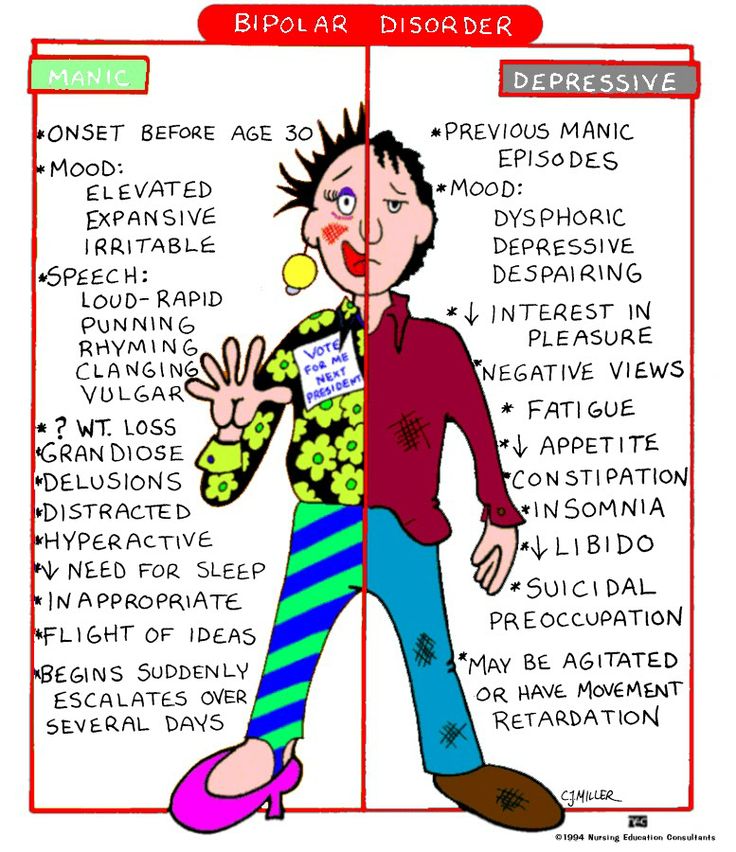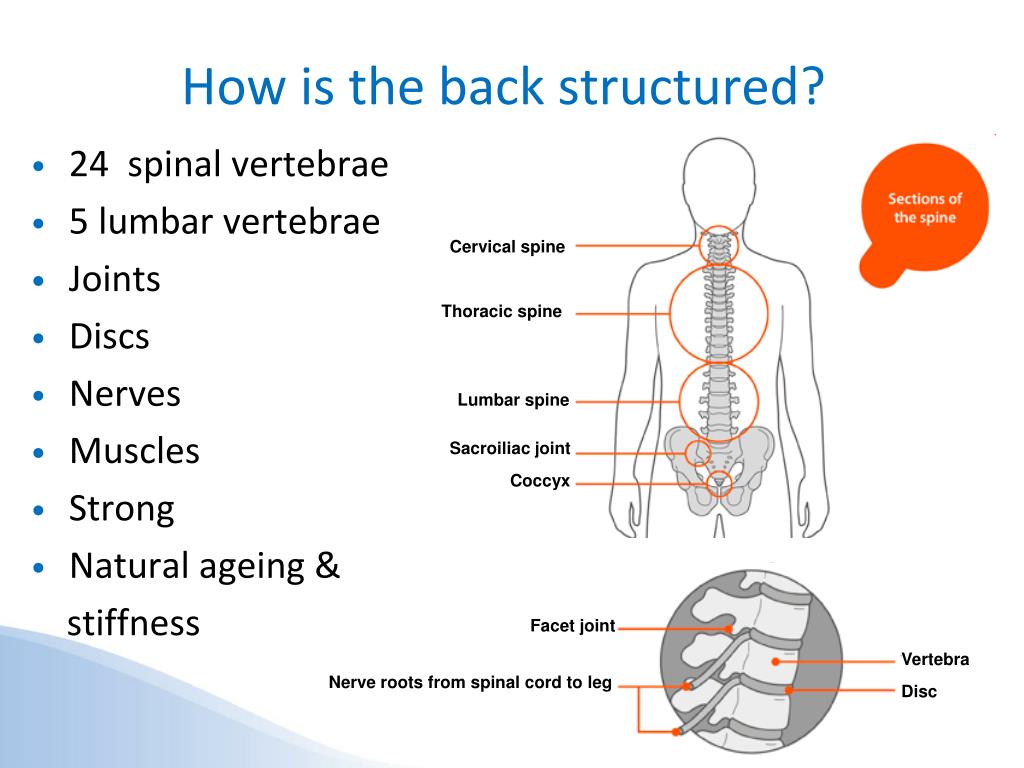Cause of psychopathy
What Causes Psychopathy | Psychopathy Is
Translations Available
This information should not be used to diagnose or treat. It is not meant to take the place of consultation with a healthcare professional. If you have concerns, you should contact your healthcare provider for a screening.
A common question is: “What causes psychopathy?” As is true for other developmental disorders, there is no single cause of psychopathy. Research indicates that psychopathy results from a complex combination of genetic and environmental (non-genetic) factors.
Increased risk is not the same as a cause: It is important to keep in mind that increased risk is not the same as a cause. For example, some genetic changes associated with psychopathy can also be seen in people who don’t have psychopathy. Similarly, many children exposed to a particular environmental risk factor for psychopathy will not develop the disorder.
Genetic Risk Factors
There is no “psychopathy gene,” but research tells us that psychopathy tends to run in families. Even if a parent does not have psychopathy, they may carry one or more genetic variants that increase their child’s chance of developing psychopathy.
Most psychological outcomes are caused by the combined effects of many hundreds or thousands of genes. The combined effects of many genes account for about half of the variation in psychopathic traits. This means that some children are born at higher risk for developing psychopathy.
Is psychopathy something people are born with? It’s Complicated. No one is born with psychopathy (or any other psychological disorder). However, some children are born at high risk for developing psychopathy due to inherited (genetic) factors.
Environmental Risk Factors
Environmental influences can increase—or reduce—the odds of developing psychopathy in people who are at risk due to inherited factors.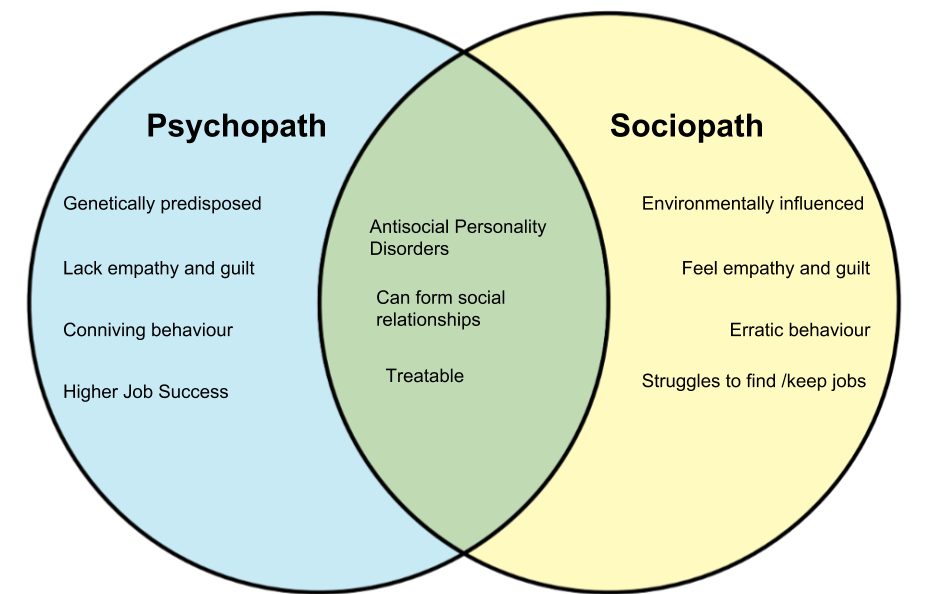 There are many environmental risk and protective factors for psychopathy, most of which have not yet been identified. Each of these factors likely has only a small impact. In other words, each of these factors might only affect the severity of psychopathic symptoms a little bit. Factors that increase risk for psychopathy include:
There are many environmental risk and protective factors for psychopathy, most of which have not yet been identified. Each of these factors likely has only a small impact. In other words, each of these factors might only affect the severity of psychopathic symptoms a little bit. Factors that increase risk for psychopathy include:
- Perinatal factors, such as smoking during pregnancy, high-stress levels during pregnancy, or birth complications
- Not experiencing highly warm and responsive parenting in early childhood (Read more about what is meant by ‘warm and responsive parenting’ and its relationship to psychopathy)
Again, it is important to remember that a risk factor is not the same as a cause. Many children with psychopathy have none of these risk factors and did experience warm and responsive parenting. Similarly, most children with these risk factors will not develop psychopathy.
Other risk factors for psychopathy include:
- Low resting heart rate, which may reflect low physiological arousal
- A fearless temperament
The origins of these risk factors are not clear. They probably reflect a combination of genetic and environmental factors. It is also not clear if low resting heart rate or a fearless temperament cause psychopathic traits to emerge, or whether they are simply correlated with psychopathic traits.
They probably reflect a combination of genetic and environmental factors. It is also not clear if low resting heart rate or a fearless temperament cause psychopathic traits to emerge, or whether they are simply correlated with psychopathic traits.
Differences in Brain Biology
Genetic and environmental influences do not cause psychopathy directly. Instead, they influence the way certain brain structures and circuits develop in a way that increases the risk a person will develop psychopathy.
For example, one brain region that seems to be particularly important is the amygdala. This structure is involved in social responsiveness, empathy, and outcomes related to fear. Children with psychopathy may have amygdalas that develop differently from other children. In children who are psychopathic, this region may be smaller or less active than in other children. This may be why they are relatively fearless and less socially responsive. The amygdala also sends and receives information from other brain regions that may also be affected in psychopathy.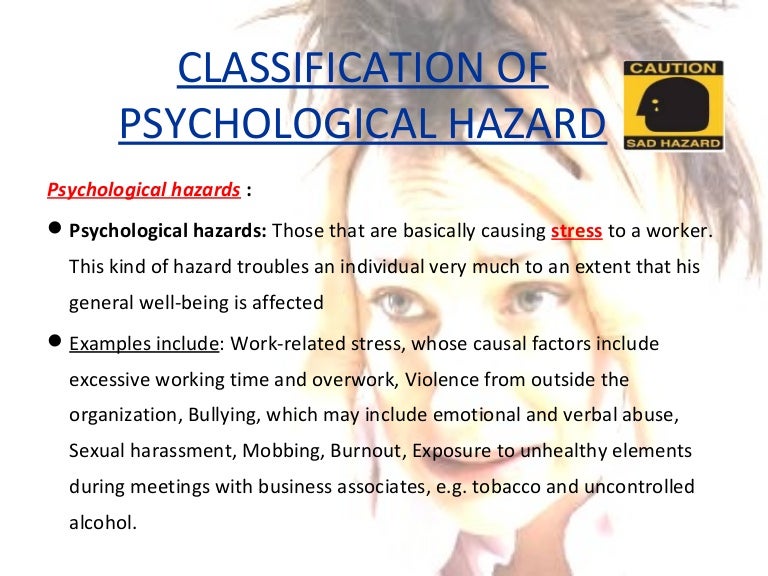 These include parts of the cortex, or surface, of the brain, as well as other brain systems that regulate emotion and decision-making. Research continues to explore these differences with the aim of developing treatments that can improve behavior and quality of life.
These include parts of the cortex, or surface, of the brain, as well as other brain systems that regulate emotion and decision-making. Research continues to explore these differences with the aim of developing treatments that can improve behavior and quality of life.
Some children are born at higher risk for psychopathy—but what parents do still matters
Some children are born at higher risk for psychopathy due to genetic variables that affect brain development. But parents still play an important role. Learning to use specific therapeutic techniques with high-risk children can reduce their chances of developing psychopathy.
Parents often feel guilty about their child’s mental disorders. And it is common for parents–particularly mothers–to be blamed by others, including mental health providers, for their child’s difficulties. For decades, psychiatrists and psychologists blamed disorders like autism and schizophrenia on “refrigerator mothers” and “schizophrenogenic mothers!” But as scientific research on autism and schizophrenia accumulated, it became clear that these complex developmental disorders are not caused by specific parenting practices.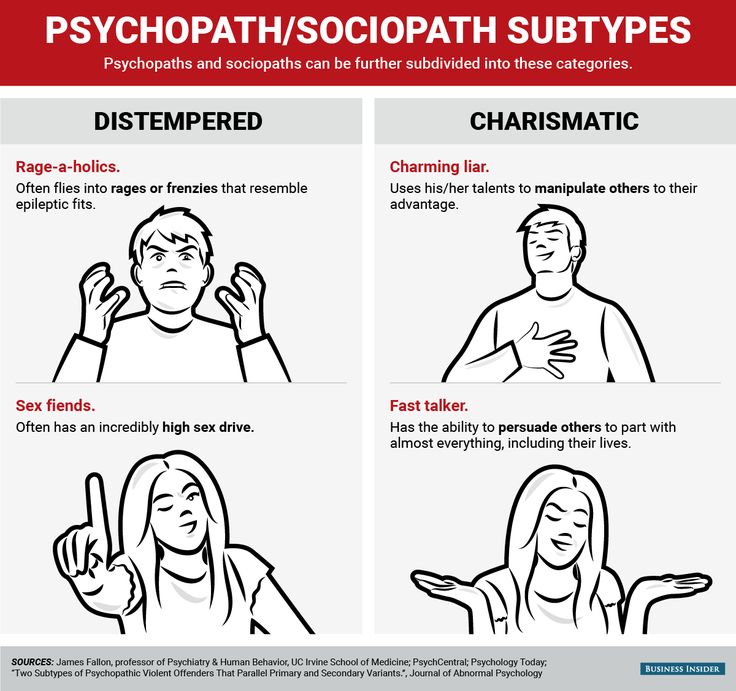
Similarly, research on psychopathy has made clear it is also not caused by specific parenting practices. Most families in which a child has psychopathy also have other children without psychopathy. This makes it clear that the parents are not causing their child’s psychopathy. Although scientific research shows that warm and responsive parenting can reduce the risk of psychopathy, many children and adults with psychopathy have parents who are warm and responsive.
What does it mean for a parent to be “warm and responsive?” Warm parenting means showing your child positive emotion using your face, voice, and body. Warm parenting behaviors include smiling, speaking in a warm tone of voice, and using positive touch (for example, a gentle touch on the arm, a hug, or a high-five). Responsive parenting means responding appropriately to your child’s needs and emotions. Responsive parenting behaviors include, for example, expressing concern through your face and voice, asking questions, or offering a hug if your child is upset.
Some research suggests that children with psychopathy are less sensitive than other children to positive social and emotional cues. As a result, these children may benefit from unusually strong displays of positive emotion from their parents–beyond what parents would naturally use.
Parents can be trained to use specific behavioral techniques to improve their child’s symptoms. This is also the case for autism: we know parenting does not cause autism, but parents can be trained to use specific techniques (such as ABA) to improve an autistic child’s symptoms.
It is important for parents of children with psychopathy to learn effective techniques in part because a child’s psychopathy can change parents’ behavior toward their child over time in maladaptive ways. For example, some children with psychopathy resist affection. So parents may be less verbally or physically affectionate because they believe that is what their child prefers. But children at risk for psychopathy may actually need more verbal and physical warmth than other children.
What to Read Next
Why do some people become psychopaths?
You currently have JavaScript disabled in your web browser, please enable JavaScript to view our website as intended.
Here are the instructions of how to enable JavaScript in your browser.
Psychopathy is one of the most well-known and well-studied personality disorders. But is there an underlying biological reason for psychopathy? And if so, can the disorder be cured?
09 October 2017
3 min read
Overview
People have long been fascinated with the idea of psychopaths, with violent ‘psychopathic’ characters turning up time and again in books, television and film.
Annabel Sturgess
Events Officer, the Royal Society
People have long been fascinated with the idea of psychopaths, with violent ‘psychopathic’ characters turning up time and again in books, television and film.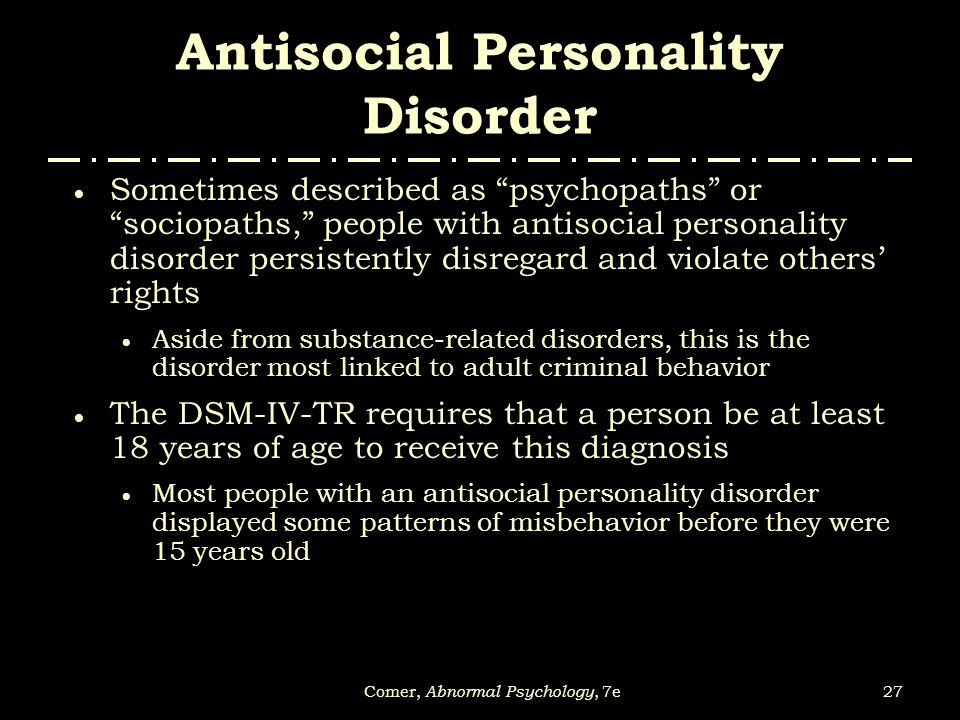 However, whilst people with psychopathic characteristics may have an increased risk of violence, this is far from a defining feature. Instead, psychopathy is characterised by an extreme lack of empathy. Psychopaths may also be manipulative, charming and exploitative, and behave in an impulsive and risky manner. They may lack conscience or guilt, and refuse to accept responsibility for their actions. Psychopathy is one of the most well-known and well-studied personality disorders. But is there an underlying biological reason for psychopathy? And if so, can the disorder be cured?
However, whilst people with psychopathic characteristics may have an increased risk of violence, this is far from a defining feature. Instead, psychopathy is characterised by an extreme lack of empathy. Psychopaths may also be manipulative, charming and exploitative, and behave in an impulsive and risky manner. They may lack conscience or guilt, and refuse to accept responsibility for their actions. Psychopathy is one of the most well-known and well-studied personality disorders. But is there an underlying biological reason for psychopathy? And if so, can the disorder be cured?
Research has suggested that the areas of the brain involved in emotion processing, empathising and decision making – for example amygdala, insula and ventromedial prefrontal cortex – show reduced activity in people with psychopathic characteristics when they see other people in distress or try to learn consequences of their actions. The impaired functioning of these areas of the brain affects the ability of individuals with psychopathy to form associations between stimuli and consequences, such as hurting other people and the fear and distress others display as a consequence, or making a poor choice and receiving a punishment.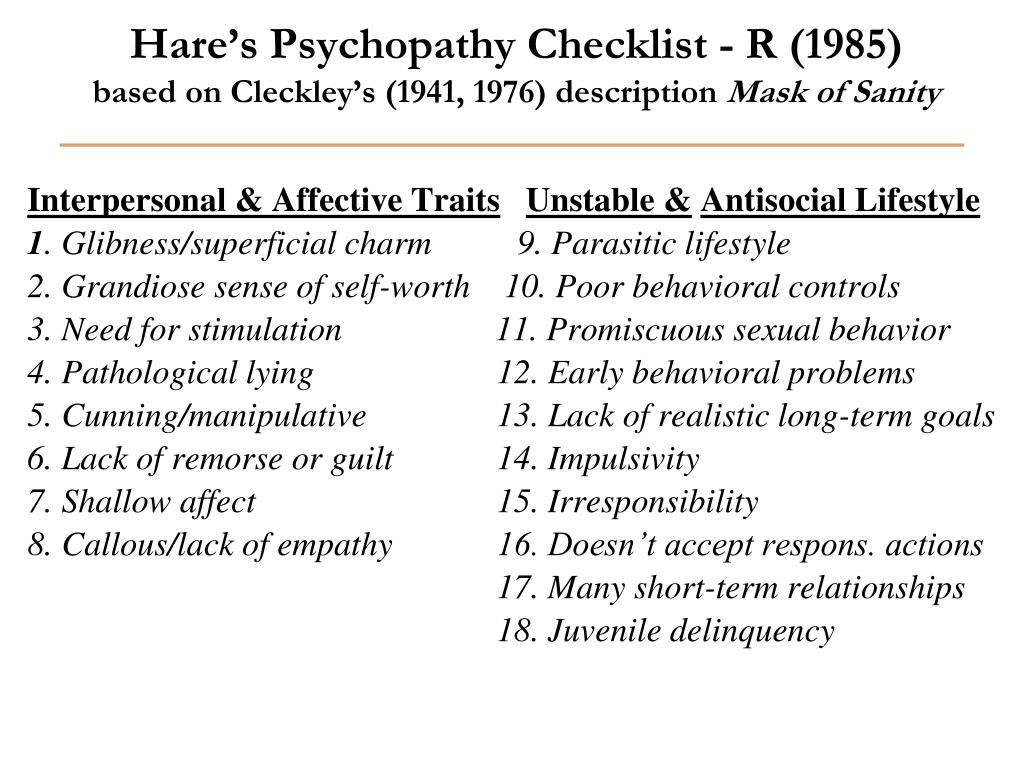 Altogether, the reduced activity within these areas of the brain impairs responses to emotional stimuli and decision making. The key question is: do these differences in the brain make someone into a psychopath, or does their behaviour change the brain?
Altogether, the reduced activity within these areas of the brain impairs responses to emotional stimuli and decision making. The key question is: do these differences in the brain make someone into a psychopath, or does their behaviour change the brain?
Children that show a lack of empathy, lack of guilt and have shallow emotions, defined as callous-unemotional traits, are at increased risk of developing psychopathy in adulthood. These children are more likely to display anti-social behaviour, such as bullying and aggression. They are less likely to respond to socially rewarding stimuli such as happy faces, and are also less likely to recognise a fearful expression. Adolescents with callous-unemotional traits may be more likely to enjoy being cruel than being kind. They are also less likely to form long-term friendships, as they may not experience enjoyment from these relationships. Twin and adoption studies can be used to investigate whether these behaviours are influenced more by someone’s genes or their environment.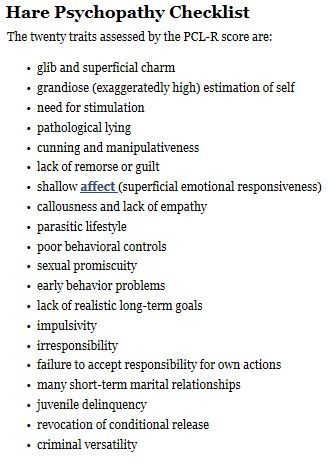 Identical twins share all of their DNA, whereas fraternal twins only share half their DNA (like other siblings). If a characteristic is more likely to be shared by identical twins than fraternal twins, this suggests that genetic influences are important in explaining individual differences on that characteristic. Adoption studies are also useful as the child shares no DNA with their adoptive parents, but their adoptive parents provide all their environment. This enables researchers to study the causal impact of parental input on behaviour. Twin and adoption studies have suggested that callous-unemotional traits in childhood have a genetic basis, and that anti-social behaviour coupled with callous-unemotional traits is more influenced by genes than anti-social behaviour alone. However, adoption findings strongly indicate that the genetic vulnerability is not a destiny, but can be counteracted by protective environmental influences.
Identical twins share all of their DNA, whereas fraternal twins only share half their DNA (like other siblings). If a characteristic is more likely to be shared by identical twins than fraternal twins, this suggests that genetic influences are important in explaining individual differences on that characteristic. Adoption studies are also useful as the child shares no DNA with their adoptive parents, but their adoptive parents provide all their environment. This enables researchers to study the causal impact of parental input on behaviour. Twin and adoption studies have suggested that callous-unemotional traits in childhood have a genetic basis, and that anti-social behaviour coupled with callous-unemotional traits is more influenced by genes than anti-social behaviour alone. However, adoption findings strongly indicate that the genetic vulnerability is not a destiny, but can be counteracted by protective environmental influences.
There are many implications of the research into callous-unemotional traits and psychopathy. As we seek to better understand how these features develop and how people with these features see the world around them, we can better tailor interventions to suit individual needs. It is clear that intervening early in children with callous-unemotional traits could prevent psychopathy in adulthood, with all the psychological and social consequences.
As we seek to better understand how these features develop and how people with these features see the world around them, we can better tailor interventions to suit individual needs. It is clear that intervening early in children with callous-unemotional traits could prevent psychopathy in adulthood, with all the psychological and social consequences.
Professor Essi Viding is a leader in this area of research and is the winner of the Royal Society Rosalind Franklin Award and Lecture 2017. On 19 October 2017 Professor Viding discussed how psychopathy arises and how it might be prevented in her lecture ‘Why do some people become psychopaths?’.
Browse by category
- History of science
- News and views
- Schools Network
- Publishing
Subscribe today to keep in touch
Subscribe to our newsletters to be updated with all of our latest news on innovation, events and articles
causes, symptoms, signs, diagnosis (tests), treatment
Features
Causes
Symptoms
Diagnosis
Treatment
The diagnosis of "psychopathy" means that a person has a persistent disorder of personality, behavior and character, which disrupts interaction with the outside world and persists throughout life.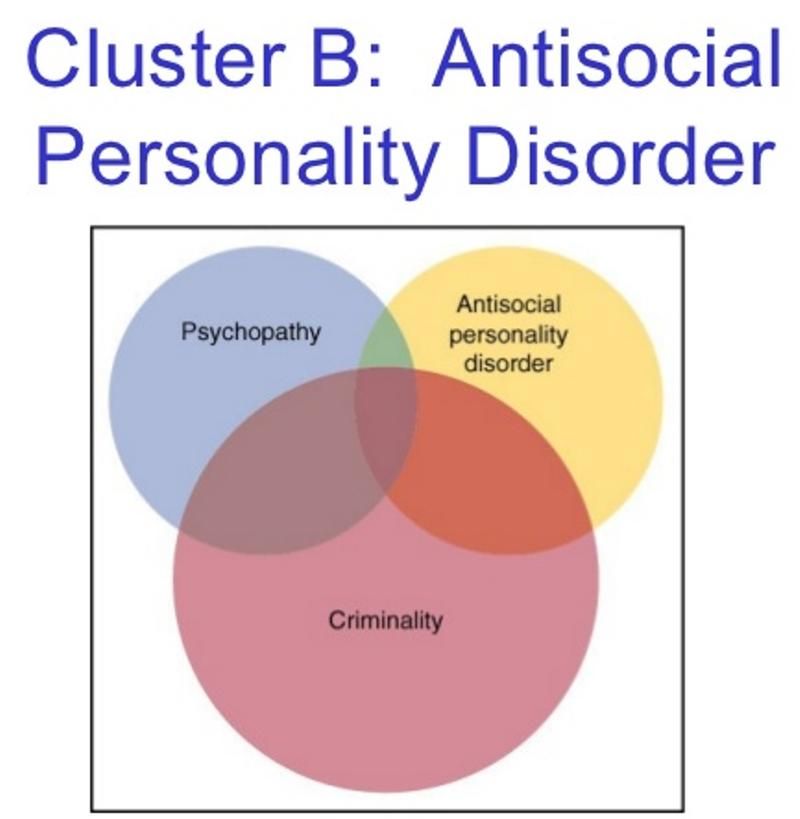
The main defect of the nervous system of such people is that they have weakly expressed features that make a person a person: compassion, sympathy, love. Because of this, it is difficult for a person to live in peace with himself and society, social adaptation suffers. Such people do not have a sense of shame, they consider themselves right in everything, they do not understand what repentance is. Due to personality traits, psychopaths often become criminals. nine0003
In the ICD, the condition is classified as mental illness, coded under the heading "Specific Personality Disorder".
Peculiarities of psychopathy
Signs of psychopathy appear throughout life, intensifying in adolescence and old age. According to international studies, the frequency of the disorder is 10% of the world's population. All forms were taken into account, including the lungs, the least accounted for were narcissistic and anxiety disorders. The gender distribution is uneven: men have paranoid, schizoid and dissocial disorders, while women have emotionally unstable and hysterical ones.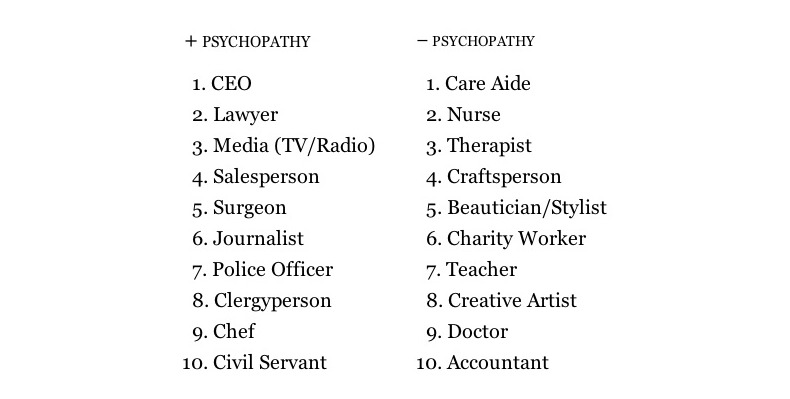 There are mixed forms that combine manifestations of various types. nine0003
There are mixed forms that combine manifestations of various types. nine0003
Personality disorders are an interdisciplinary problem. The disease is at the junction of neurology, psychiatry and psychology, the treatment is carried out by specialists in these professions.
Causes of psychopathy
The study of the problem continues, experts identify the following groups of causes:
- hereditary - associated with a genetic defect transmitted through generations, or with intrauterine hazards (this theory is confirmed by the fact of family "copying" of mental disorders and pathological character traits). According to this mechanism, constitutional (nuclear) types of psychopathy are formed; nine0032
- organic causes - various damaging factors that affect a healthy brain. With this form, the corrective value of external factors, educational and pedagogical, increases;
- post-processual (marginal) factors - a characterological defect is formed after (due to) difficult life circumstances, illnesses, situations and reactions.
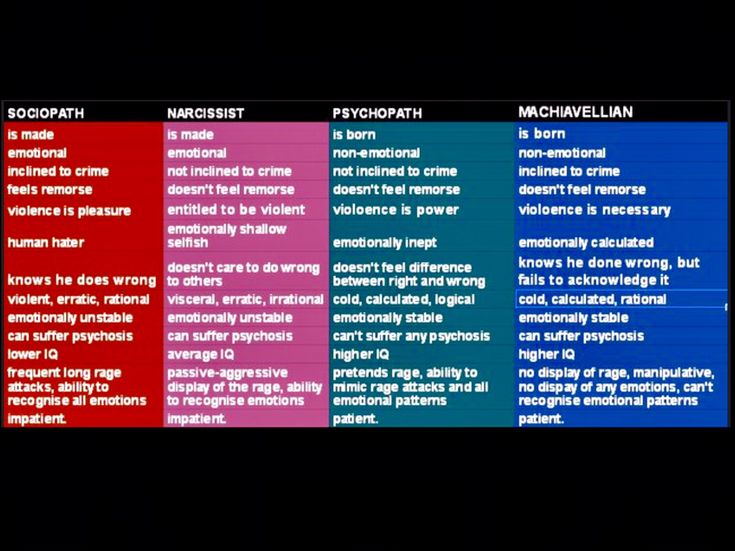
Experts continue to argue about what role each factor plays. Doctors are inclined to believe that the pathological course of pregnancy, difficult childbirth and illnesses of the first year of life are of the greatest importance. An indelible pathological result is obtained by children who have been subjected to psychological or sexual violence. Difficult living conditions in early childhood have an extremely unfavorable effect: drunkenness of parents, poor care, irregular feeding, general neglect. Practice shows that a disorder is formed when internal and external factors coincide in time. nine0003
Psychopathic symptoms
Symptoms depend on the form of the disease, according to the ICD, the following stand out:
- paranoid - too sensitive to failures, do not forgive insults, suspicious, they see a continuous negative in the actions of others. They believe that they are always right, unreasonably jealous, their interests always come first.
 This form of psychopathy affects men;
This form of psychopathy affects men; - schizoid - social contacts are minimal, dreamers, cannot sincerely become attached to a person or pet, do not experience pleasure, do not know how to express feelings, voluntary hermits, constantly delve into themselves, are prone to the formation of delusional systems; nine0032
- dissocial - neglect social laws and restrictions, callous, aggressive, prone to violence, always blame others for everything. This form of psychopathy occurs in adolescents, as they grow older it can be smoothed out;
- emotionally unstable - capricious, act under the influence of a minute impulse, do not evaluate the consequences of their actions. Emotions prevail over the mind ("first I do, then I think"). Whims and thoughtless behavior are combined with a feeling of inner emptiness and tension. Another name is an excitable personality; nine0032
- hysterical - excitable, superficial, theatrical, lead a "life for show", suggestible, extremely selfish, listen exclusively to their own desires, need tireless attention and recognition.
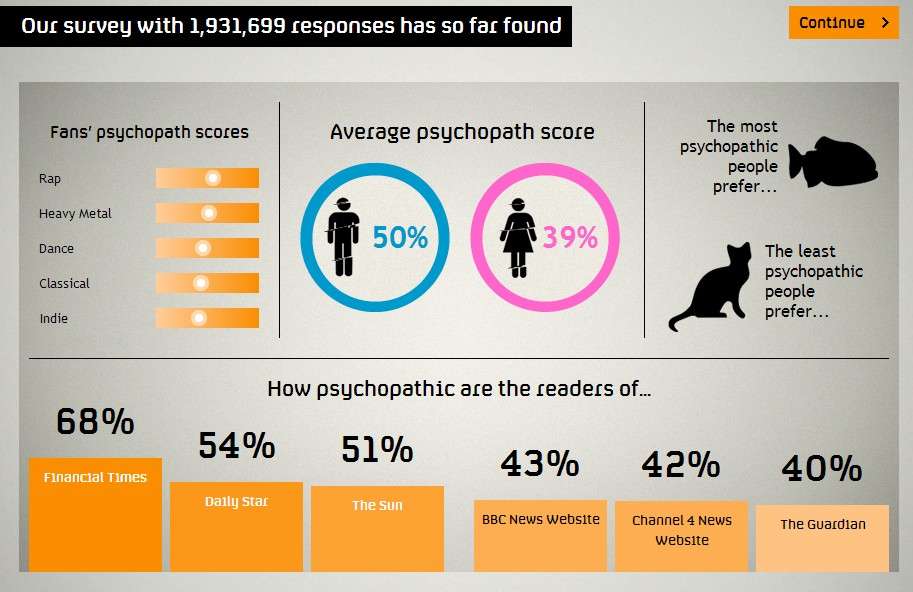 This form of psychopathy in women is more common, exacerbated by a tendency to demonstrative behavior and suicide;
This form of psychopathy in women is more common, exacerbated by a tendency to demonstrative behavior and suicide; - anankastic (close to obsessions, obsessive-compulsive experiences) - not self-confident, scrupulous, stubborn, stuck on details, adamant; nine0032
- avoidant (anxious) - tense, tormented by gloomy forebodings, suffer from inferiority complexes, there is no basic sense of security. Rejections and criticism are unbearable, exaggerate dangers, need praise and recognition;
- dependent personality - they completely subordinate themselves to others, are afraid of loneliness, consider themselves helpless and insignificant, shift responsibility to those who are nearby;
- narcissistic (narcissistic) - they are convinced of their own uniqueness, they demand admiration and submission from others, they are envious. nine0032
The main manifestation of all forms is the nurturing of one's own "I" and a deep contempt for the needs and feelings of others, including close relatives. Due to the pathology of the character, psychopaths do not have friends, are unlucky in their personal lives, rarely reach professional heights (with the exception of acting) and have problems with the law.
Due to the pathology of the character, psychopaths do not have friends, are unlucky in their personal lives, rarely reach professional heights (with the exception of acting) and have problems with the law.
Psychopathy in children is noticeable after three years. At this age, a normal child is already able to empathize, feel sorry for those who feel bad. An unhealthy child is completely devoid of these feelings. Such babies are indifferent to someone else's pain, they are excellent manipulators. They easily find weaknesses in the behavior of their parents and always achieve what they need, always behave in accordance with the situation for the greatest benefit for themselves. Another characteristic feature is cruelty towards animals, younger children and elderly, helpless relatives. Such children are happy to bully those who cannot answer. Having become a little older, children steal money and things from home, never repenting of it. nine0017
Psychopath diagnostics
Recognition of the disease is carried out exclusively by a psychiatrist.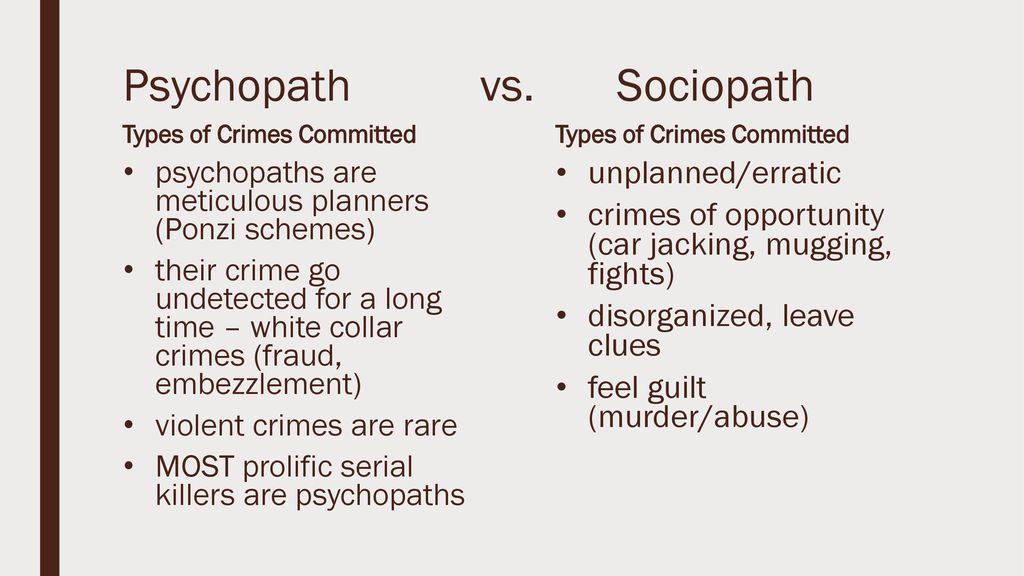 It is based on the clinical and anamnestic method, when the doctor evaluates the pathological manifestations in the patient and his immediate family. If an organic cause of the process is suspected, neuroimaging methods and laboratory tests can be used.
It is based on the clinical and anamnestic method, when the doctor evaluates the pathological manifestations in the patient and his immediate family. If an organic cause of the process is suspected, neuroimaging methods and laboratory tests can be used.
Criteria for psychopathy were developed by the Russian psychiatrist Pyotr Borisovich Gannushkin, who published a fundamental monograph in 1933. The criteria are:
- stability - symptoms are practically not related to age, do not change throughout life;
- totality - pathological manifestations are not affected by circumstances, in any situation a person behaves the same way;
- maladaptation - the patient creates everyday barriers both for himself and for others.
For an objective diagnosis of the disorder, various tests for psychopathy are often used: Robert Hare, SPR-III, Levenson. These are questionnaires consisting of 20–30 questions concerning the assessment of various life situations. nine0003
nine0003
Treatment of psychopathy
Correction of personality disorders is effective in childhood and adolescence, until the character is finally formed. Medical support is used to mitigate character traits and behavioral deviations (deviations from the norm), tranquilizers and atypical antipsychotics are used.
Corrective psychological work is carried out with the patient himself and those adults who are in daily contact with him. Adults are taught to recognize the manipulation of a child or adolescent and how to counter it. Each case of problematic behavior is analyzed from different points of view, the best way to respond is developed. nine0003
With the persistent efforts of the family, pathological manifestations can be significantly mitigated. The sooner treatment is started, the more likely it is that a child with a personality disorder will have a successful life.
The author of the article:
Novikov Vladimir Sergeevich
psychotherapist, clinical psychologist, kmn, member of the Professional Psychotherapeutic League
reviews leave feedback
Clinic
m.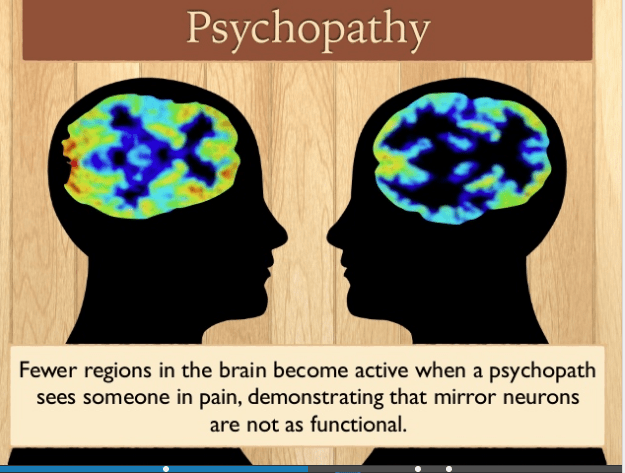 Frunzenskaya
Frunzenskaya
Reviews
Services
- Title
- Initial appointment, consultation with a psychotherapist (up to 1 hour) 4000
- Repeated appointment, consultation with a psychotherapist (up to 1 hour)3000
Health articles
All articlesAllergistGastroenterologistHematologistGynecologistDermatologistImmunologistInfectionistCardiologistCosmetologistENT doctor (otolaryngologist)MammologistMassageNeurologistNephrologistOzone therapyOncologistOphthalmologistProctologistPsychotherapistPulmonologistRheumatologistTherapistTraumatologistTrichologistUltrasound (ultrasound examination)UrologistPhysiotherapistPhlebologistSurgeonFunctional diagnostics and Energist nine05 years. Red Gates. AvtozavodskayaPharmacy. Glades. Sukharevskaya. st. Academician Yangelam. Frunzenskaya ZelenogradBasko Marina Vladislavovna
psychotherapist
reviews Make an appointment
Clinic
m.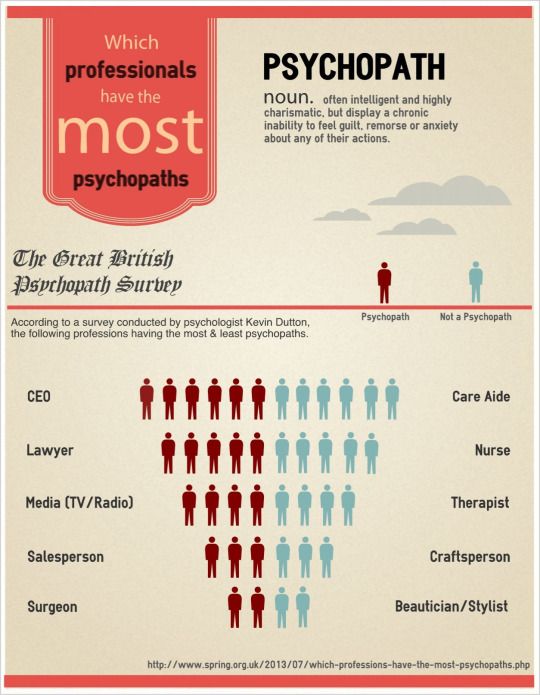 Sukharevskaya
Sukharevskaya
Sorokin Maxim Vladimirovich
psychotherapist
reviews Make an appointment nine0003
Clinic
m. Frunze
psychopathy: causes, signs, symptoms
The entire section
The entire section
Our licenses and awards
lectures, seminars
Training
Sign up for reception
9000 9014 9000 9000 9000 9000 9000 9000 9000 9000 9000 9000 9000 9000 9000 9000 9000 9000 9000 9000 Each person has a set of qualities and character traits that allows us to talk about individuality from birth. Psychopathy is called pathological personality changes, characterized by the total predominance of one of the character traits. The pathology of personality psychopathy begins to develop in childhood, but it is diagnosed no earlier than 12 years.How psychopathy occurs
Psychopathy is more common in men. This disease greatly complicates the life of a person and his loved ones, does not allow him to adapt in society, gain recognition of his talents, etc. Psychopaths are more likely to get into criminal situations, abuse alcohol or drugs.
Among the causes that can lead to psychopathy, there are:
- Heredity and constitutional factors.
- Intrauterine brain damage in the fetus, hypoxia or birth trauma. nine0032
- Difficult psychological situation in the family.
- Unfavorable social factors.
The main signs of psychopathy can be seen in boys during the first age crisis (2-5 years). Children with an excitable type of psychopathy are overly active, excitable, capricious, they are characterized by increased malice and aggressiveness.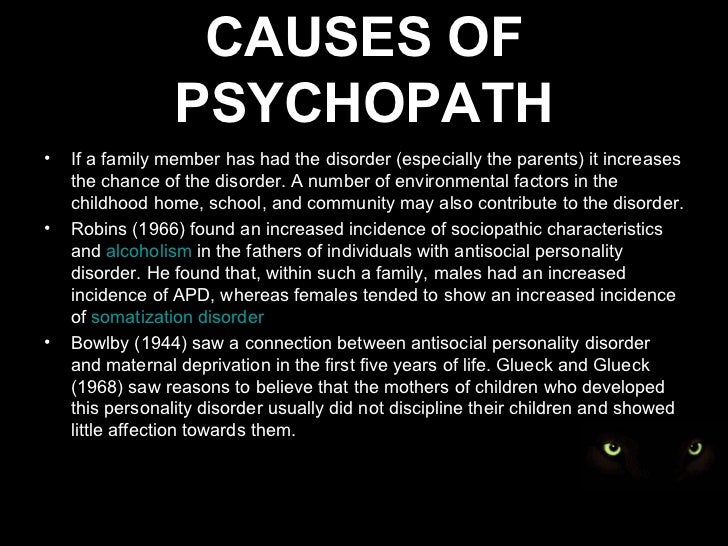 Other types of psychopathy are more pronounced in adolescence. The child may become overly careful, extremely insecure, obsessed with some idea, etc. nine0003
Other types of psychopathy are more pronounced in adolescence. The child may become overly careful, extremely insecure, obsessed with some idea, etc. nine0003
Types of psychopathy
Psychopathy can manifest itself in different ways. Its manifestation largely depends on the presence and predominance of certain character traits. But the difference between this pathology is the brightness of the severity of symptoms. All character traits are taken to extremes: a sick person can become suspicious, extremely touchy, bitter, etc.
Specialists distinguish several clinical types of psychopathy:
- asthenic - the patient is rapidly exhausted against the background of great impressionability and excitability. As a rule, such people are indecisive, they are extremely shy and timid; nine0032
- psychasthenic - this type of psychopathy is characterized by extraordinary suspiciousness. A person is in constant doubt, he is not able to make a choice or make a decision;
- explosive - this type of pathology is also called excitable psychopathy.
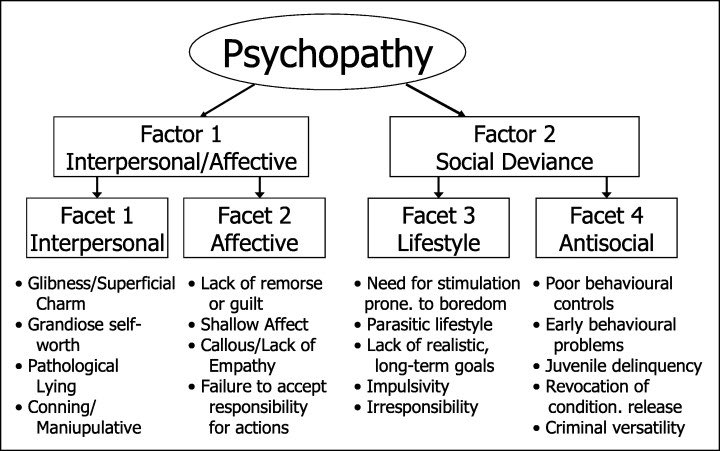 Its main manifestations are incontinence, aggression, increased strength of emotional reactions;
Its main manifestations are incontinence, aggression, increased strength of emotional reactions; - schizoid - a person is completely divorced from reality, he is closed, cold in emotions;
- paranoid - such psychopathy is accompanied by the constant generation of ideas that are of particular value to the individual; nine0032
- hysterical psychopathy is manifested by violent emotions. It is characterized by a certain theatricality, necessary to draw attention to the person.
Mixed types of psychopathy are often diagnosed, which are characterized by the presence of several symptoms.
The symptoms of psychopathy in men do not make them dangerous criminals. People with these disorders can have a family, hold leadership positions and make good money. As a rule, they have high intellectual abilities, but the highest moral qualities are completely absent. Psychopaths do not experience shame, empathy, trust, remorse, etc.






